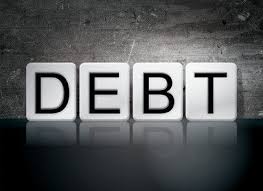What is Financial Freedom?
Financial Freedom can be defined by the radical focus, which is discipline and self control of one’s financial status or the financial status of an entity.
- discipline – action or inaction that is regulated to be in accordance (or to achieve accord) with a particular system of governance. Discipline is commonly applied to regulating human and animal behavior to its society or environment it belongs. In the academic and professional words a discipline is a specific branch of knowledge, learning, or practice. Discipline can be a set of expectations that are required by any governing entity including the self, groups, classes, fields, industries, or societies.
- and self control – an aspect of inhibitory control, is the ability to regulate one’s emotions, thoughts, and behavior in the face of temptations and impulses. As an executive function, it is a cognitive process that is necessary for regulating one’s behavior in order to achieve specific goals. A related concept in psychology is emotional self-regulation. Self-control is thought to be like a muscle. According to studies, self-regulation, whether emotional or behavioral, was proven to be a limited resource which functions like energy. In the short term, overuse of self-control will lead to depletion. However, in the long term, the use of self-control can strengthen and improve over time.
This can be broken down or determined by The responsible handling of:
- Income
- Discretionary income
- Wealth
- Net worth
Income
The consumption and saving opportunity gained by an individual or entity within a specified timeframe, which is generally expressed in monetary terms.
Income is difficult to define conceptually and the definition may be different across fields.
For example, a person’s income in an economic sense may be different from their income as defined by law.
For households and individuals in the United States, income is defined by tax law as a sum that includes any wage, salary, profit, interest payment, rent, or other form of earnings received in a calendar year.
Discretionary income
Often defined as gross income minus taxes and other deductions (e.g., mandatory pension contributions), and is widely used as a basis to compare the welfare of taxpayers.
In the field of public economics, the concept may comprise the accumulation of both monetary and non-monetary consumption ability, with the former (monetary) being used as a proxy for total income.
For a firm, gross income can be defined as sum of all revenue minus the cost of goods sold. Net income nets out expenses: net income equals revenue minus cost of goods sold, expenses, depreciation, interest, and taxes.
Wealth
The abundance of valuable financial assets or physical possessions which can be converted into a form that can be used for transactions.
This includes the core meaning as held in the originating Old English word weal, which is from an Indo-European word stem.
The modern concept of wealth is of significance in all areas of economics, and clearly so for growth economics and development economics, yet the meaning of wealth is context-dependent.
An individual possessing a substantial net worth is known as wealthy.
At the most general level, economists may define wealth as “anything of value” that captures both the subjective nature of the idea and the idea that it is not a fixed or static concept.
Various definitions and concepts of wealth have been asserted by various individuals and in different contexts.
Defining wealth can be a normative process with various ethical implications, since often wealth maximization is seen as a goal or is thought to be a normative principle of its own.
A community, region or country that possesses an abundance of such possessions or resources to the benefit of the common good is known as wealthy.
Net worth
Defined as the current value of one’s assets less liabilities or debt (excluding the principal in trust accounts).
What is Debt?
An action that requires one party, the debtor, to pay money or other agreed-upon value to another party, the creditor. Debt is a deferred payment, or series of payments, which differentiates it from an immediate purchase.
The debt may be owed by sovereign state or country, local government, company, or an individual. Commercial debt is generally subject to contractual terms regarding the amount and timing of repayments of principal and interest. Loans, bonds, notes, and mortgages are all types of debt. In financial accounting, debt is a type of financial transaction, as distinct from equity.
A financial transaction is an agreement, or communication, between a buyer and seller to exchange goods, services, or assets for payment.
goods
Items that satisfy human wants and provide utility, for example, to a consumer making a purchase of a satisfying product. A common distinction is made between goods which are transferable, and services, which are not transferable.
A good is an “economic good” if it is useful to people but scarce in relation to its demand so that human effort is required to obtain it. In contrast, free goods, such as air, are naturally in abundant supply and need no conscious effort to obtain them. Private goods are things owned by people, such as televisions, living room furniture, wallets, cellular telephones, almost anything owned or used on a daily basis that is not food-related.
A consumer good or “final good” is any item that is ultimately consumed, rather than used in the production of another good. For example, a microwave oven or a bicycle that is sold to a consumer is a final good or consumer good, but the components that are sold to be used in those goods are intermediate goods. For example, textiles or transistors can be used to make some further goods.
Commercial goods are construed as tangible products that are manufactured and then made available for supply to be used in an industry of commerce. Commercial goods could be tractors, commercial vehicles, mobile structures, airplanes, and even roofing materials. Commercial and personal goods as categories are very broad and cover almost everything a person sees from the time they wake up in their home, on their commute to work to their arrival at the workplace.
services
An “(intangible) act or use for which a consumer, firm, or government is willing to pay.” Examples include work done by barbers, doctors, lawyers, mechanics, banks, insurance companies, and so on. Public services are those that society (nation state, fiscal union or region) as a whole pays for. Using resources, skill, ingenuity, and experience, service providers benefit service consumers. Service is intangible in nature. Services may be defined as acts or performances whereby the service provider provides value to the customer.
In a narrower sense, service refers to quality of customer service: the measured appropriateness of assistance and support provided to a customer. This particular usage occurs frequently in retailing.
or assets
Any resource owned or controlled by a business or an economic entity. It is anything (tangible or intangible) that can be used to produce positive economic value. Assets represent value of ownership that can be converted into cash (although cash itself is also considered an asset). The balance sheet of a firm records the monetary value of the assets owned by that firm. It covers money and other valuables belonging to an individual or to a business.
Assets can be grouped into two major classes: tangible assets and intangible assets. Tangible assets contain various subclasses, including current assets and fixed assets. Current assets include cash, inventory, accounts receivable, while fixed assets include land, buildings and equipment. Intangible assets are non-physical resources and rights that have a value to the firm because they give the firm an advantage in the marketplace. Intangible assets include goodwill, copyrights, trademarks, patents, computer programs, and financial assets, including financial investments, bonds, and stocks.
Any transaction involves a change in the status of the finances of two or more businesses or individuals. A financial transaction always involves one or more financial asset, most commonly money or another valuable item such as gold or silver.
There are many types of financial transactions. The most common type, purchases, occur when a good, service, or other commodity is sold to a consumer in exchange for money. Most purchases are made with cash payments, including
- physical currency,
- debit cards,
- or checks.
The other main form of payment is credit, which gives immediate access to funds in exchange for repayment at a later date.
In Summary
In closing, financial freedom or financial independence is the status of having enough income or wealth sufficient to pay one’s living expenses for the rest of one’s life without having to be employed or dependent on others. Income earned without having to work a job is commonly referred to as passive income.
There are many strategies to achieve financial independence, each with their own benefits and drawbacks. Someone who wishes to achieve financial independence can find it helpful to have a financial plan and budget, so that they have a clear view of their current incomes and expenses, and can identify and choose appropriate strategies to move towards their financial goals. A financial plan addresses every aspect of a person’s finances.
I hope that you have really enjoyed this post,
Please Leave All Comments in the Comment Box Below ↓









Having financial freedom is the dream of many people, but it only comes with dedication and perseverance.
The first step is to make sure that you are free of any debt. Having a financial plan with clear goals, can help you to achieve financial freedom. If you write down your monthly income and expenses, you can work out a budget, to make sure that you live within your means.
By investing in passive funds like ETFs, can help you to start on the road to financial freedom.
All the best in your journey to financial freedom.
Hello,
I couldn’t agree more.
In addition to those things, investing in mutual funds can be a safer way to accumulate capital gains in the long game.
I am so thankful that I decided become financially free by paying off my debts and not creating new ones, as well as making smart investments along the way.
I actually have a net worth now.
Thank you for commenting,
All the best in your journey to financial freedom as well,
Jerry
In fact, I’m working hard to achieve financial freedom.
Also, you have given the best idea about financial freedom in this post. We have also talked about debt in more detail. We also talked about products and services.
I will definitely be sharing this.
Thanks a lot for posts like this.
Keep posting like this.
Hello,
Speaking from experience, I had to work hard as well to achieve financial freedom. I am very thankful that I hung in there and met my goals one bill at a time.
I started paying off my lowest bills first, then I moved on to the next lowest bill until I got them all paid.
Thank you for sharing your experience.
You are welcome, and I will.
Best Of Blessings,
Jerry
Hi Jerry this is a really well defined topic.
Creating avenues that generate extra streams of income passively is a great way to keeping on the path to financial freedom.
Having a financial plan with clear set goals is definitely a must for any person hoping to achieve financial freedom, though I found its easier said than done especially in terms of self control and discipline.
Disciplining ones self to follow through on the strategies you have set can be difficult and takes a lot of determination and commitment.
I think we have a responsibility to be successful to ourselves, families and communities as a whole.
Hello,
I must agree, achieving financial freedom is easier said than done. From experience, I have also learned that it takes patience to achieve such goals.
I am very thankful to be on the positive end of finances though.
Thank you for commenting,
Have A Great Day,
Jerry
I’ve been in debt in the past and I cannot stress this enough… prioritize getting yourself out of it as interest can sky rocket at any time and it will get out of hand.
Don’t leave your savings in a bank; start investing in something that will give interest on your money. Make the money work for you.
I also think that working on a side hustle to earn an additional income is a great idea. Try to turn it into something big, eventually making it earn you a passive income.
Being in debt is a long and nasty road to be on, but make some sacrifices and cut your losses and work towards where you got to be.
Hello,
Thank you for sharing your thoughts. I agree 100%!
I have been so fortunate financially, but I have not always been as responsible as I should have with my finances in the past.
However, for the past several years I have been investing money that I will not be using for a year in mutual funds and Real Estate, I put the rest in money markets.
Real Estate is my favorite, because the money invested has a great return on/of investment.
Thank you again for your inspiring comment.
Blessings My Friend,
Jerry
I wanted to find out more information about debt and managing the debt for Finacial freedom.
I strongly belive people can have financial freedom if they manage their money carefully. Mostly, when they have money to go out buying this and that, especially name brand cars and big house.
By them buying luxury items, they are putting themselves in deeper debt. I like how you broke up everything like goods with a detailed explanation.
Hello,
Thanks for commenting.
My experience with debt has taught me to only buy what I really need if I don’t have the financial resources to do more. With the exception of a house, financing is definitely off limits for me.
Since I have become financially free, I actually have an organic net worth!
Thank again for commenting.
Blessings,
Jerry
Hi, thank you very much for this article.
I’m just starting my path to becoming a financial freedom member (a professional program student loan is a pain!).
I have been looking for ways to get out of these debts as soon as possible. I hope that one day I will get there and be able to start investing.
Hello,
You are welcome for this article.
It definitely takes a lot of discipline to become finacially free, especially if you are burried in a large amount of debt. The next hardest thing to do is to remain financially free.
My advice to you is, pay off your smallest debt first, then move on to the next smallest debt and pay it off, then the next, so on and so forth.
Here’s To Becoming Financially Free!
Blessings,
Jerry